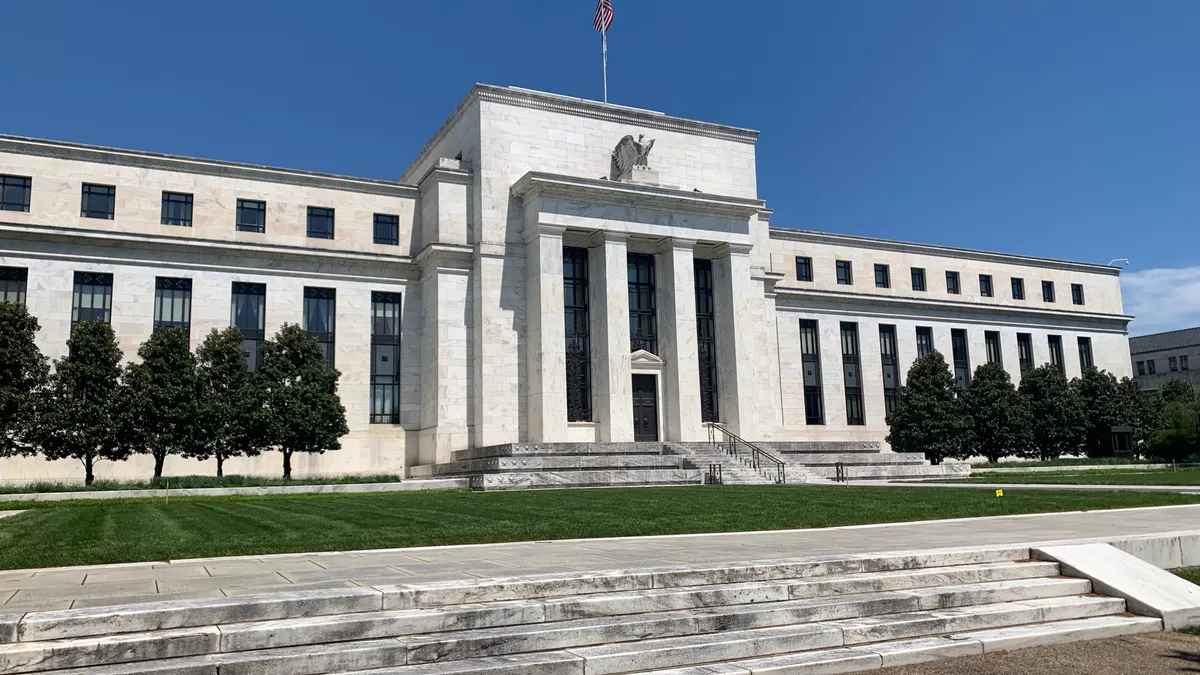A report released Monday by the Federal Reserve’s Office of Inspector General cleared former Dallas Fed President Robert Kaplan and former Boston Fed President Eric Rosengren of wrongdoing, capping a two-year probe into stock trades they made in 2020.
While the report found that the personal trades they made did not violate the law, the watchdog criticized Kaplan and Rosengren, saying their actions undermined public confidence in the central bank.
In particular, Kaplan did not publicly disclose the specific dates of his trading activities, nor did he specify transactions that involved the selling of stock option contracts, the OIG wrote.
“This lack of information, in our opinion, did not support public confidence in the impartiality and integrity of the policymakers and senior staff carrying out the public mission of the [Federal Open Market Committee’s] work, especially during this critical time period when the Federal Reserve was taking monetary policy actions to address the effects of the COVID-19 pandemic on the U.S. economy,” the OIG wrote.
Kaplan’s actions created an “appearance of a conflict of interest” that could cause a reasonable person to question his impartiality under the Dallas Fed’s code of conduct, the watchdog wrote.
Rosengren, meanwhile, failed to report multiple trades on his 2020 Form A, the OIG found, adding that it saw multiple discrepancies between the transactions reflected in his brokerage statements and trading data and what he reported in his disclosure forms.
“[In] our opinion, Mr. Rosengren’s trading activities in [real estate investment trusts] in 2020 — during a time of financial market volatility that prompted the Federal Reserve to authorize the purchase of agency [mortgage-backed securities] — create an ‘appearance of a conflict of interest’ that could cause a reasonable person to question Mr. Rosengren’s impartiality under FRB Boston’s code of conduct,” OIG wrote in the report.
The watchdog said the findings did not rise to the level of a violation of laws, rules, regulations or policies related to trading activities.
However, Derek Tang, a policy analyst at research firm LH Meyer, said the rules at the time “didn’t think as far ahead about the issues being so complex.”
“A tacit responsibility of Fed leadership is not to bring the system into disrepute, which means best practice is to avoid even the appearance of conflicts,” Tang said, according to The Wall Street Journal.
Kaplan and Rosengren resigned from their respective satellite banks within hours of each other in 2021, when financial disclosure forms revealed they traded stocks in 2020 while also helping to set monetary policy — a practice that, at the time, met the central bank’s code of ethics but raised concerns around potential conflicts of interest.
The central bank issued new rules in 2022, barring the Fed’s board governors, 12 regional presidents and senior staff from buying individual stocks, holding investments in individual bonds or agency-backed securities, or entering into derivatives. Under the rules, policymakers and senior staff are required to provide 45 days’ notice before buying or selling any allowed securities, must obtain approval for those transactions, and must hold any investments for at least a year.














